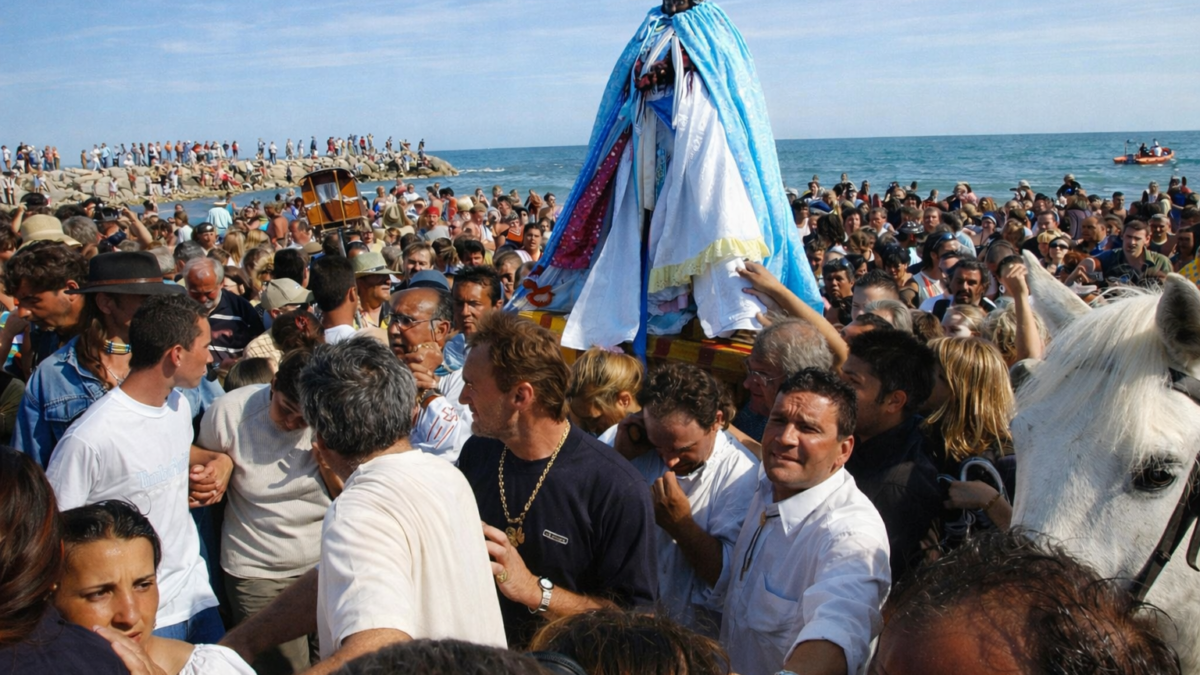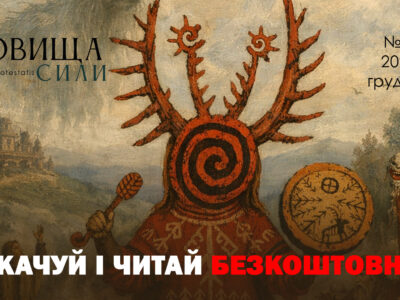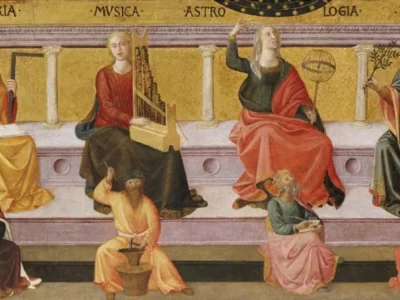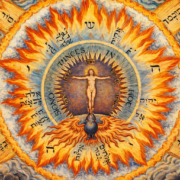Who just didn’t sing it? And Shevchenko, and Pushkin, and Byron and Shakespeare. Ordinary people also celebrate love in their poetry. «If not love, then what can it be? And as love, what is it? ”Francesco Della Petrarca asks in one of his sonnets. Love, not as simple feelings, as a couple, as a moment, arise and then disappear. If we say that love is eternal, then we must say that such love does not disappear; it is characterized by constancy. We often imagine love as a sign of positive and good feelings, youthful love. After all, love is really present in these signs, and it is a necessary component of a full human life. And everyone imagines love in a different way.

Not to miss the theme of love in philosophical culture and tradition. Of great importance in it is the concept of «eroticism», in which love manifests itself powerfully and harmoniously. According to Plato’s description, Socrates holding a glass of wine tells his friends the story of the priestess Diotima, which describes the erotic ascent of the human soul, which under the power of love enthusiasm must, according to the philosopher, rise to higher and higher and more perfect steps of being.
Socrates thinks that if «love-eros» is on the right path, it becomes quite possible to discover the beauty of the soul in its disembodied and figurative manifestations, after which the beauty of «beautiful disciples» awaits man. The same opinion was held by Plato himself, as the basis of the Greek ancient interpretation of love. Plotinus, a follower of Neoplatonism, also started from this idea. As in Plato, Plotinus’ notion of love has a pronounced concept of «eroticism», in which the dominant is still a female tone: Unlike Plato, Plotinus lacks the pathos of active self-improvement, ideal formation, but focuses on mysticism. We find love «eros» as the foundation of human feelings and love and Nikolai Berdyaev as well. The deification of what thinkers have called the spiritual potential in love — «eros» does not give reason to believe that this is the love through which you can build a perfect relationship. Of course, it is a component of human life, but not the basis. There is too much in the love of «eros» not so much in relation to someone, but in the love of dependence, the love of feelings, which can be selfish in relation to oneself. In fact, no one builds exclusively family, state and administrative relations on «eros».
In the 60’s of the twentieth century. There is a well-known among young people pacifist movement of hippies. Very good slogan! He spoke out against any war and violence and called on humanity to finally love each other! “Don’t war! Make love! ”Came from their mouths. However, under the meaning of the concept of «love», hippies have invested in the meaning of physical intimacy, rejection of traditional morals. Today, this has created problems for AIDS, the decline of the moral foundations of society, sincere and good relations between children and parents. Unfortunately, there has been less communication between children and the older generation, parents who are «nothing in life.» So, can such «love«, drawing a parallel with the philosophical understanding of «eros» be called a true manifestation of love? I think most readers will share my opinion and say no. Indeed, you can not build relationships solely on instincts, even if somewhere they are natural and are in man. But only on their basis there will be no right relationship.
Love is not loving someone for one’s own benefit in order to be loved. Love is a sacrifice without benefit for oneself. Rather, in the name of love, you are willing to give everything away without taking anything. Only true and sincere love will motivate a person to take such steps. Even if the person you love does not reciprocate. «True love,» wrote the Danish philosopher S. Kierkegaard, «is always directed to the person who makes you unhappy.» And in this the thinker is right. It is possible to give one’s life for the sake of an educated, kind and sincere person, or for the sake of a good and useful scientific or cultural idea. But for the sake of a man who is neither good nor sincere, no one will give up even his precious time. Therefore, the Greek ideal of «eros» is opposed to the true Christian ideal of «agappe», which symbolizes the love of «sacrifice», which in itself is both rationally justified and out of rational at the same time. Such is the love described in the Gospel texts of Jesus Christ, the Son of God, for men. «Yes, for God has loved the world, having given his Son» — writes St. Evangelist John. The love of Jesus Christ is devotion to people who have always been hostile to Him. And this is the greatest divine example of love for man in all human history.
It is worth noting that true love, not false love, is not just about how I feel or how I feel. Otherwise, should it be considered love when a mother and father give a child a toy that the child is eager to receive? Apparently not. Moreover, as time goes on, the toy gets bored, new interests and hobbies appear, which replace its previous love for the toy. But love is eternal. It does not change, it is one regardless of our preferences and tastes, our worldview and interests. Otherwise, it is not love. Love is above human interests, hobbies and preferences. There is a group of people who are surprised, from a couple who in old age rest in the park holding hands, who smile at each other and feel just the happiest people in this unhappy world. Unfortunately, there are not many of them. It is said that these marriages were created in heaven, and the wonder is how to live all your life with one wife, in one marriage, and stay faithful and happy with each other? They say, «A strong family is a strong state.» And this is a true statement. Only when the family, as a structural unit of society, is able to set a clear example of fidelity, order, honesty, and love. But just with the latter, it was all difficult…
Love, first of all, is a way of the correct, divine relation in which not only the good, but also immutability and permanence of such divine good is present. It is not love if it has duration and temporality. What is today and what is not tomorrow cannot be called love. In this case, this phenomenon is likely to be called simply admiration, interest and sensuality and marginality. Today we are passionate about football, judo or chess. Tomorrow we were captivated by sports cars to such an extent that from now on not to football, not to judo, not to chess. Today is such a pleasant and easy romantic acquaintance, a cup of fragrant coffee, flowers. But for some reason it passes quickly and is no longer «friends» and no longer loved. And all because in all this was not the most important thing — true love.
The subject of true and unhypocritical love can be a family, a beloved wife or husband, homeland, tastes and preferences, and so on. This attitude has always been illogical. It cannot be built in rational and logical ways.
The lack or deficiency of true love as the right attitude to reality is the factor that prevents humanity today to take each other’s hands, forgive each other, teach us to build our relationship so that everyone understands that neither my neighbor nor someone else’s family. are not my enemies in the sense that neither I nor they will be able to do wrong. A number of politicians believe that the accumulation of nuclear potential in many countries is a guarantee of security. At the same time, let me ask you, dear readers, is it better, in the name of peace, security and, above all, love, to renounce nuclear weapons to all countries of the world? And if from the weapon in general? True, in the absence of weapons, no one will go to the neighbor to fight, and no one can just go to war and fight. Is that fists, but it’s too funny. Instead, in the world’s leading nations, which hold the economy and resources, weapons are constantly accumulating. Speeches by politicians on the world stage are another chatter about «eternal peace» that can never be realized. In such cases, nothing but the visible illusion of an ideal is created, which prevails only in people’s minds and no more. Without a true relationship based on love, peace can never be built.
Love is a separate subject that exists outside of man, his ideas, feelings and consciousness. She is like a person.
True love never seeks its own and never envies. It is not proper for her to sing and glorify herself and her sincerity. Rather, it is a question of modesty. She does not seek her own and does not rejoice in evil. She is very long-suffering, which we humans do not have enough of. We say we love, but where is our patience, let alone long-suffering? Oh, how often we are far from that! For the words which I have quoted above, which characterize love, were spoken long before me by the Apostle Paul in the text of the first epistle to the Corinthians of the thirteenth chapter.
I am convinced that if all these qualities that characterize true love remain in us, then only then can we expect that people really want peace. And one more thing — no matter how real people are to each other — no one would know about nuclear weapons, AKM, or anything like that. This is another thesis for reflection!
Dr. Eugene Raspopov










